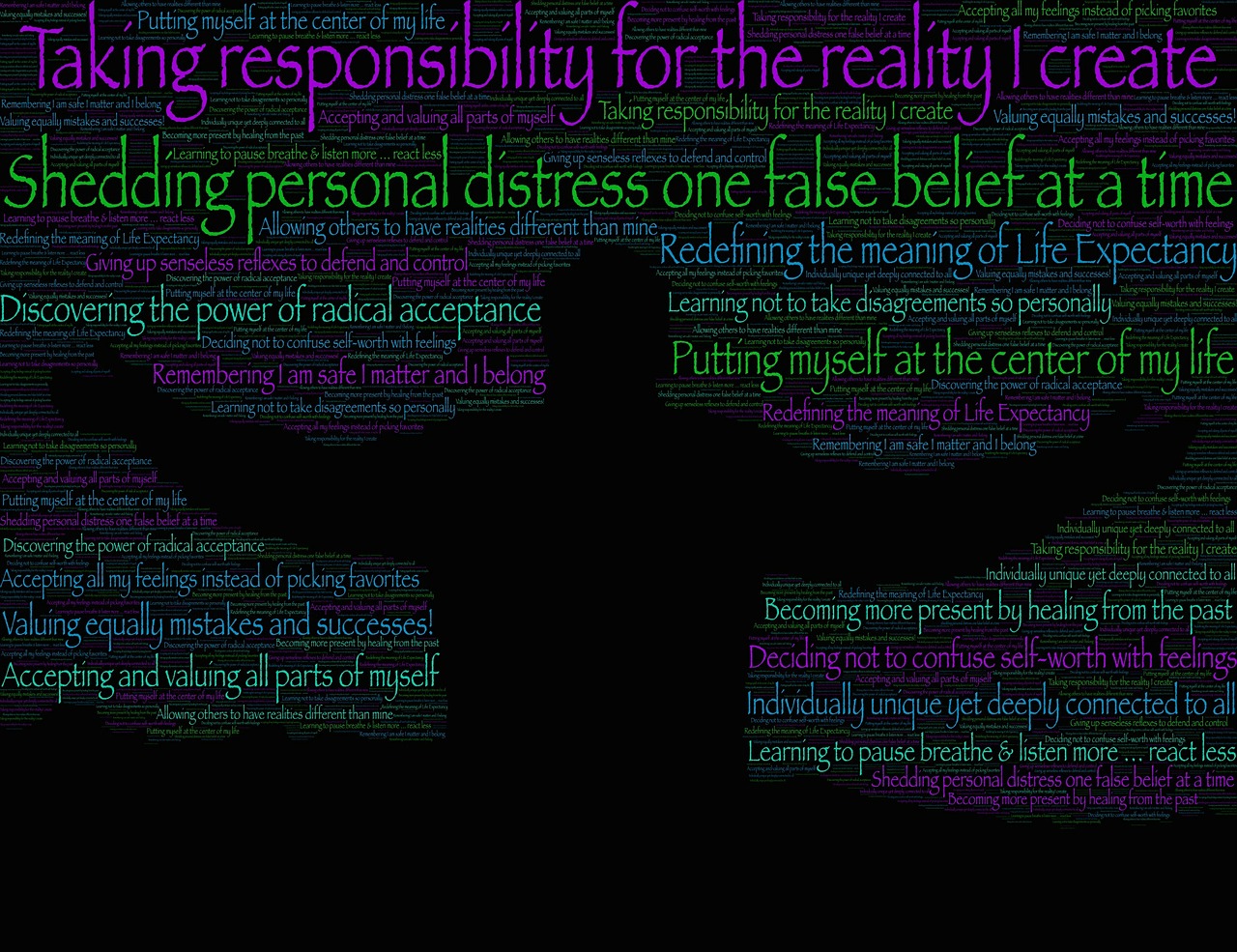Everyone is on their unique life path or journey. The same holds for self-improvement. Self-development is very personal, so much so that some people keep their issues to themselves, deciding not to discuss them. In contrast, others feel their improvement areas are better shared and supported. It is a very complex and personal thing.
People often get to a point where improving your life is necessary, and this is where real change occurs. However, this may not always prove a comfortable spot to be in, as you are about to discover.
You are Not Alone; Sometimes, We Get Very Uncomfortable with Our Lives.
It takes a very uncomfortable feeling in your current situation to spur you on to a new way of doing things. A few people love making improvements to themselves because they are very self-invested. Being self-invested or interested in your own life and self is vital in today’s complicated world.
These tips will help all these people, including you, if you want to improve your quality of life. Let’s face it, who wouldn’t want to find something better in life, or feel better about themselves?
Change always occurs within. Change and growth also happen by understanding that we are, to some extent, in control of our lives and how our lives pan out, and when it doesn’t pan out, we have the skills to stay stoic, even in challenging situations. The point is we can take the punches life throws at us from time to time. If you are here for real change, these tips will undoubtedly get you onto the road to positive self-development.
Tip 1 – Move Away From Technology
This tip does not mean a move away entirely. Many businesses and home businesses rely on technology. We are talking about the hours of mindless scrolling at your computer. Think about what you could be doing instead of that.
Studies have shown that more time spent in nature, for example, can reduce depression and anxiety, increase energy levels, improve relationships and give us that vital Vitamin D boost. This activity, in turn, helps us prevent physical illness and improve immunity.
You can start small. Take an hour’s walk instead of looking at Facebook each day.
Paint a picture, do a crossword, talk to your family, phone a friend, or visit your neighbor. You get the picture. Being more present in our lives is paramount to change in the long term. Remember, no one sees you behind your screen, no matter how active or inactive you are on social media. In a sense, you become invisible and out of sight; out of mind is very accurate in this instance. People have reported feeling more lonely despite hanging out in social groups online. The only way to build your confidence and your body’s resistance to adversity is to get appreciated in real-time. Start with ten-minute periods; if this is tricky for you, increase it daily.
Some people feel comfortable having internet-free days, and if you meet a friend for lunch, put your phone away.
Tip 2: Rediscover Kindness
For years, kindness was a virtue, and people were admired and thought of highly if they were kind. These days a lot of emphasis has been placed on saying such as ‘It’s a dog eat dog world, ‘or ‘kill or be killed!
Reality TV programs strengthen that frame of reference in your brain. Start becoming aware of what ideas the media is trying to sell you and what their agenda could be behind the concept they are trying to sell. Be different and decide to be kind. Being good to other people increases feel-good hormones, builds self-esteem, and builds excellent networks of friends.
You might be surprised how little effort kindness takes. You could send someone a card through the post thanking that person for being a great friend. Phoning someone you haven’t heard from in a while and taking the time to find out how they are. Try it for a few days and notice how your mood lifts. Feeling empowered and good about yourself is about being willing to be altruistic.

Tip 3: Start to Work Out What is Not Working in Your Life
Perhaps you haven’t set self-improvement goals yet, and that is fine. It takes a rock and a hard place to spur us on to our newer and better selves. Start with the obvious, and don’t write down too many at first. You might want to start with the more minor things and work upward or vice versa. Just acknowledging the things we do like in our lives or that are no longer working for us means we have started the process of change and growth.
Learn more about: Tips for Personal Growth
Lives do change, and people do get unstuck; it takes seeing where we are stuck that helps us move forward. It might not work in one day or this particular hour, but we can make steps to start the ball rolling.
They say we are right here where we are meant to be. That means we have discovered what has caused us distress or unhappiness and know that it is half the battle won.
The next step is to write those things down and set goals. By default, you will start to find out how to change things.
Tip 4: Align Yourself to Your Goals
Once you understand what is not working for you and have jotted down your goals, the following step calls for action: align yourself to those goals. That means finding like-minded people, joining support groups, finding places to support you, joining therapy if needed, and getting a fitness plan in order; depending on your goal, you will know what to do next, but it takes action.
We often react to a difficult situation, turn that around and tell our mind to immediately ‘act’ on a problem. We can change it by putting action into our lives, one day at a time.
Remember: don’t react. Act!
Tip 5: Fall in Love with Routine
It sounds incredibly dull, but routine can help you thrive on your path to self-improvement, and attain many goals, health, fitness, wellness, mental health, and success.
A routine enables you to do everything you need daily without much thought. It’s a wonderful way to move forward with things.
Routines are also about self-care and attention to essential aspects of our lives. They can assist you in getting nutritional food to eat, getting a good night’s sleep, and making time for fun activities.
Every routine will be different and specific to your needs, but planners can help keep you on track. You might be a person that needs your planner in full view. You might work well with a paper planner. Try not to be too strict with your routine; it is there to guide and help you, not chain you down to specific activities.
Tip 6: Organize Your Space
Having a tidy home or office space can help you to relax, probably more than you know. Clutter and space without flow can cloud your thoughts and make a person feel agitated. Some people love working in ‘organized chaos,’ but many who use this adage admit that they prefer a smoother well-functioning space.
If your home becomes your enemy instead of your respite, it is time to organize things.
You don’t have to do this all at once. Just ten minutes spent on one area can make fundamental changes over time.
Consider if you have a good flow in your home. Using the bedroom as an example: can you lie in bed with a good reading lamp right next to you? Are the curtains dark enough to ensure a sound sleep uninterrupted by light? Is it quiet in your bedroom?
Consider good use of your bedside cabinet. Instead of fluffy toys or pajamas, perhaps bottles of water, good books, and a sleeping mask would be a better choice. It is comforting when everything is near to hand.
Does your kitchen flow easily? Is it easy to reach the things you use the most? Is it neat, and importantly are the benchtops clean and hygienic?
Creating good flow in your space can increase productivity and encourage mental wellness.
Tip 7: Utilize Your Best Time Spots
Everyone is human, and energy levels drop as the day wears on. It could be the other way around for you, but it can be challenging to juggle life’s demands. Most people find the morning their most productive time; with that in mind, get any challenges you need done first thing in the morning.
Earlier on, we spoke about routines being great, but many people do not like the idea of being too strict with a routine. Perhaps you dislike putting a time limit on something. You can use the block method instead. You would do this by blocking out the morning for a task. So, for example, if you want to get a workout done in the morning, then block the morning. If you put in a time and don’t make it on time, you might feel you failed or won’t bother to do it at all, so sometimes, time blocks work better.
Try and get more done earlier so that the evening tasks are less energetic and you can wind down again, ready for sleep.

Tip 8: Don’t Strive for Perfection
When you set up your goals for change, understand that transformation is rarely linear. If it were that easy, no one would be struggling to make changes! Change takes time, but simply recognizing that you need to change certain things means changes occur.
Also read: What is the Most Important Step in Prioritizing Goals?
You will have moments of success with moments of perceived failure. Failure is only failure if you give up entirely. Many smokers, for example, try a few times before they finally kick the habit. The actual process is more about giving up smoking takes time. It has a couple of setbacks in its operation. They didn’t fail. They followed the usual steps and hurdles that no smokers followed to get to where they were: a former smoker. The same goes for any self-development plan.
Tip 9: Get a Course
Self-improvement and self-growth are big topics now, and the good news is that people understand that everyone’s journey is different. Courses and education have never been as accessible as now, so do some homework and find out which course suits your growth goals.
Many courses also offer accreditation on a particular subject, meaning they can be life-changing for you. Also, you could manage to do this from home and in your own time.
Whether it is learning woodwork, learning how to draw, or changing your life in other ways, your knowledge can help you and, ultimately, other people if that is part of your plan. The only thing that could be stopping you is self-doubt. The only way to remove self-doubt is to get going and do it.
Tip 10: Begin Your Changes Right Now
Some changes take time, and some take years, weeks, or months, but the time to start is right now. Life has a funny way of snowballing, but you have to start with that small mound of desire, and as time goes on, it will grow momentum. Before you know it, you have made significant changes on your path to self-improvement, and you as a person have developed and improved your talents and life beyond what you could have dreamed.
Write down your dreams and goals, no matter how absurd they might seem at first. You could turn some goals and dreams into satisfying hobbies. Some plans can turn into careers and lifelong works that inspire not only yourself but other people too. Some of your most challenging life experiences could help other people.
Beginning right away removes any time for doubt or overthinking.
Never compare your goals to others; you are unique in your gifts and talents and what you have to offer the world and yourself.
Retain your brand of uniqueness and forge on to your goals. We all are given one life to live, as far as we know! And your brand of talents and gifts is all you need to get ahead to where you want to be.
If doubt kicks in, you can remove it with the best remedy: action.

